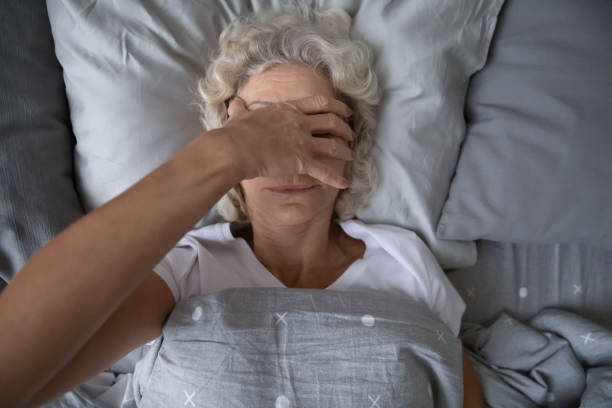
One of the common problems associated with aging is a disruption in sleep patterns.Sleep disorders are prevalent in the elder population, affecting about 50% of people 65 and older versus only 15-25% of younger age groups.Many seniors struggle with the quality and duration of their sleep and when the symptoms are severe, it can affect the state of their physical and mental well-being.While sleep disorders are not a natural part of aging, research has shown that older adults are more vulnerable to disruptions in their sleep patterns.
These sleep disorders can be attributed to factors that include but are not limited to:Dementia related illnesses such as Alzheimers.Chronic medical conditions such as cancer, heart disease, and diabetes.Excessive use of alcohol or caffeine stimulants.The effects of certain medications.Depression, anxiety, and stress.Chronic pain from issues like arthritis.Lack of sufficient daily physical activity.For optimal daytime alertness, adults typically require 7-8 hours of refreshing sleep over a 24 hour period.A widespread belief is that older adults require less sleep than younger ones and this is an erroneous assumption.The primary reason seniors sleep less than younger age groups is because their sleep tends to be fragmented, with frequent interruptions during day and nighttime sleep.
Periods of deep sleep in older adults are reduced or nonexistent which is why many seniors report having difficulty falling to sleep and staying asleep as well as waking up too early or experiencing excessive daytime sleepiness.Be Proactive About Problems SleepingSenior sleep disorders should always be taken seriously because chronic sleep problems can have dire consequences.Sleepiness can cause slip and fall injuries and lead to cardiovascular, pulmonary, and central nervous system health issues.Medical research has confirmed a link between sleep disorders and hypertension.
For someone with dementia, sleep problems can result in moving from their home to a specialized nursing care facility.Because sleep disorders and their causes can vary, so can treatment plans.Relieving chronic pain and controlling medical conditions such as frequent urination can improve the quality and duration of sleep.Treating depression, adjusting medications, and engaging in a more active lifestyle can also minimize or eliminate many common sleep problems.
Other more simple and effective way to improve sleep can include:Refrain from eating large meals shortly before bedtime.Light snacking is permissible, and many people report that a glass of warm milk before going to bed leads to increased sleepiness.Sleep in a room that is temperature controlled.Being too hot or too cold can disrupt sleep patterns, so find out what temperature allows you to sleep the best and maintain it for the duration of your time in bed.Keep your bedroom as quiet as possible.
Turn off your tv, cell phone, computer, and other personal devices.If you must watch television, set the timer to turn it off in 30 minutes or less so it does not awaken you unexpectedly during the night.Minimize daytime naps.Older adults tend to take more naps during the day than younger people, and this is fine as long the naps are not excessive in length.
A day nap of 30-90 minutes is ideal and the shorter the better for a good nights rest.Avoid stimulants such as caffeine products at least 3-4 hours before retiring for the night.Use your bed for sleeping only.If you want to read, surf the internet, talk on the phone, or engage in some other like activity, do it somewhere else in your home.Your bedroom should be a safe haven for sleep only.Have a routine for when you go to bed and when you wake up.
If you go to bed and wake up at the same time every day, your sleep patterns become more predictable, consistent, and easier to maintain.Be more active during daytime hours.Improving the quality and quantity of your physical activities will make you more tired when bedtime arrives and enable you to sleep deeper, longer.Get Professional Help For Your Sleep DisordersThere are many factors that influence sleep-awake cycles and treatments for sleep disorders should be individualized according to your unique symptoms.Some treatments involve simple behavioral changes while others are more medically oriented, including use of sleep medications.
If you are an older adult that is experiencing problems sleeping, always consult first with your health care practitioner so that your problems are correctly identified, evaluated, and treated.When it is time for bed, sleep well.Everything you do, you will do better with a good nights sleep.
Disclaimer: This story is auto-aggregated by a computer program and has not been created or edited by Senior Savings Deals.
Publisher: Senior Caregivers ( Read More )
Publisher: Senior Caregivers ( Read More )

